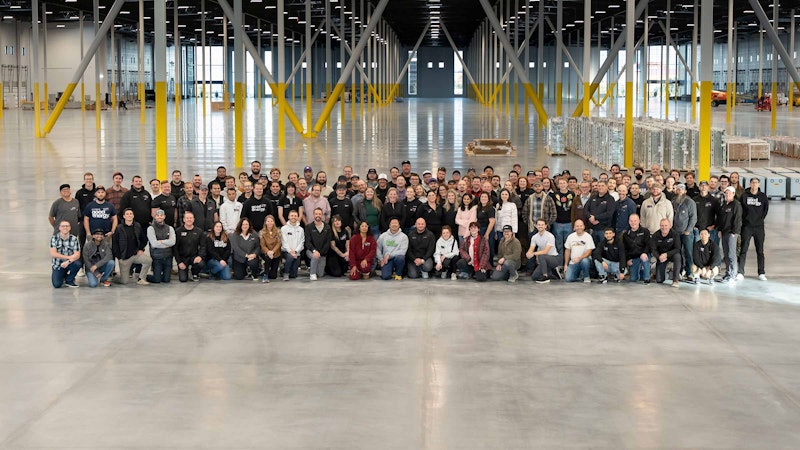Self-sufficient homes aren’t just a trendy buzzword—they're the superheroes of our energy future. By harnessing renewable resources like solar power and water, these homes lower utility bills and reduce your carbon footprint, contributing to a more sustainable future.
In this article, we'll explore the concept of self-sufficiency in more detail and discuss why energy independence is the way forward.
Key Points
- Reliance on non-renewables brings high costs, supply risks, and environmental harm.
- Shifting to renewables is crucial for sustainability, with self-sufficient homes offering reduced bills and smaller carbon footprints.
- Smart homes, energy storage, and efficient appliances optimize energy use, ensuring reliable power from renewables. The Torus Station intelligently integrates all of these technologies.
The Current Landscape of Energy Dependence
As we continue to rely on non-renewable energy sources like coal and oil, it's becoming increasingly clear that this approach is simply not sustainable. Our dependence on these traditional energy sources brings challenges such as:
- Vulnerability to supply disruptions and power outages
- Rising utility costs
Non-renewable energy sources pose significant environmental threats as well. The most notable is the emission of greenhouse gasses, such as carbon dioxide, which contribute to climate change. Even their extraction sites harm ecosystems and biodiversity worldwide.
To tackle these challenges, we need to shift our focus towards renewable energy sources. And that's where self-sufficient homes come in.
The Future is Energy Independence
Adopting energy independence, both on an individual and a community level, is more feasible and practical than ever before, thanks to advancements in renewable energy technologies.
For the Individual
On an individual level, homeowners can install solar panels, wind turbines, or even geothermal systems to create a self-sufficient, energy-independent home. While these systems require an initial investment, they can pay for themselves over time by significantly reducing utility bills. They also often qualify for tax incentives and rebates that further offset upfront costs.
For the Community
The adoption of renewable energy sources can transform entire neighborhoods or towns into energy-independent entities. Community solar gardens or wind farms, for example, allow those who cannot install their own systems to still benefit from renewable energy.
These communal energy systems can provide reliable, locally sourced power. This not only supports the local economy but also reduces its carbon footprint. A collaborative approach allows for shared costs and maintenance, which makes it a practical and economically viable option for many communities.
The Role of Renewable Energy in Self-Sufficient Homes
Renewable energy sources are absolutely crucial in the quest for energy independence. Power systems that use any of the following are capable of providing clean energy to homes without the need for external power sources:
- Solar Panels
- Wind Turbines
- Hydroelectric Systems
- Geothermal Energy
Plus, the use of renewable energy sources in self-sufficient homes also contributes to broader environmental goals. It decreases our dependence on fossil fuels, reduces carbon emissions, and mitigates the effects of climate change. Adopting renewable energy use isn't just a personal win—it's a victory for our planet, too.
3 Technologies Driving Energy Independence
Energy independence is driven by advancements in renewable energy technologies. Here are some of the innovative solutions that are helping create energy-efficient homes:
1. Smart Home Systems
Smart home systems have emerged as a game-changer in the quest for energy independence. Home automation systems can control lighting, HVAC systems, and appliances to optimize energy use throughout the day. By integrating with renewable energy sources, these systems can reduce energy waste and our reliance on the grid.
2. Energy Storage Solutions
Energy sources like solar and wind only generate power when the sun is shining or the wind is blowing. By storing excess energy in batteries, homes can continue to run on renewable energy even when these sources are not producing electricity. This ensures a consistent supply of power, irrespective of weather conditions, and further promotes energy independence.
3. Energy-Efficient Appliances
From Energy Star-rated fridges to LED lighting, these appliances use far less energy than their traditional counterparts. When paired with renewable energy systems, they're even more effective at lowering energy costs and reducing environmental impact.
Self-sufficient homes are the key to a sustainable future. And what better way to create an eco-friendly home than a solution that takes advantage of all of these technologies? The Torus Station is a cutting-edge energy management solution that powers homes with green, reliable electricity. The future of energy lies in such seamless integrations of renewable sources, smart grids, and advanced energy storage systems.
Torus Is Your First Step Towards Energy Independence
At Torus, we believe that energy independence is a crucial step towards creating a better world. Our innovative technology allows homeowners to optimize their electricity use and power their homes with renewable energy—day or night. It's time to create self-sufficient homes that are smart and sustainable.
Embrace energy independence today by ordering now. For any additional questions, schedule a free consultation with us.
You May Also Like

In The News
Rep. Celeste Maloy Visits Torus GigaOne Facility, Highlighting American-Made Grid Infrastructure
Congresswoman Celeste Maloy toured Torus’ new 540,000-square-foot GigaOne facility in Salt Lake City, spotlighting the company’s rapid manufacturing expansion and its role in delivering American-made, resilient energy storage systems to strengthen the U.S. power grid and supply chains.

In The News
2025 Wrap-Up and Look Ahead to 2026
From 99.99% uptime to 500 MW in utility partnerships to opening our new GigaOne manufacturing and assembly facility to growing our team to nearly 200 strong, we're accelerating the deployment of resilient power systems for our customers.
